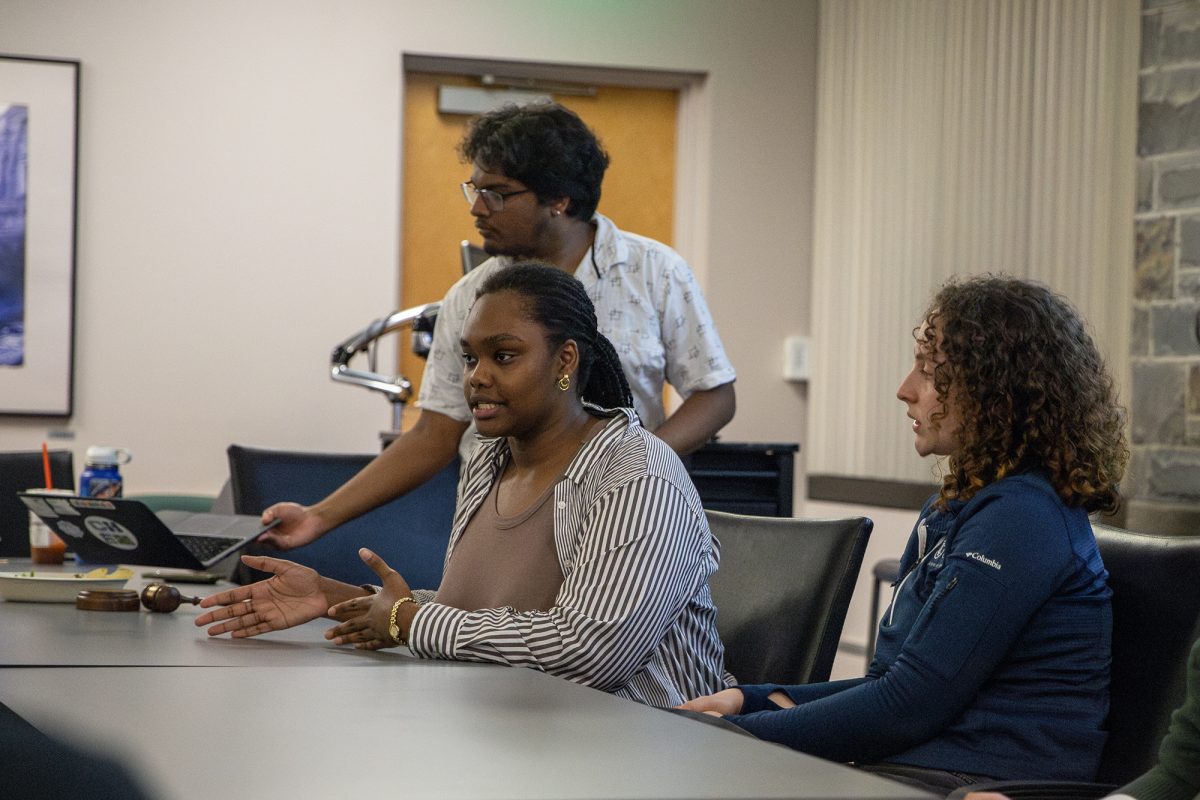As some companies are continuing to phase out bachelor’s degrees as a job requirement, members of the Ithaca College community discuss the value of a college degree and alternate educational paths.
According to the 2022 United States Census Bureau, 37.7% of people ages 25 and up have a bachelor’s degree. And, in 2021, it was reported that 23.5% in that age group had a bachelor’s degree.
For many years, a bachelor’s degree was required to get certain jobs in fields like healthcare, business and social services. However, Intelligent reported that in 2024, 45% of companies will no longer require bachelor’s degrees and 55% have already got rid of the requirement in 2023. Whole Foods, Costco, Apple and Google are some companies that do not require a bachelor’s degree from applicants.
Eric Machan Howd, director of the Office of Extended Studies at the college, said that even though companies that do not require bachelor’s degrees will be able to attract more candidates, they will be missing out on candidates who gained the education and experiences from a liberal arts college like Ithaca College.
“When I hear about companies who are not requiring baccalaureate degrees … what I worry about is it is kind of being too specific and too niche in terms of what they’re looking for, when we’re producing so many wonderful graduates here,” Machan Howd said.
Dave Curry, director of the Center for Career Exploration and Development, said the shift in entrepreneurship is creating more jobs and opportunities to find success. Curry said because of this, people are criticizing the value of a college degree.
However, Curry said people should remember the importance of having a college degree as an educational and professional tool.
“A lot of the positions that they’re removing the bachelor’s requirement are for entry-level positions,” Curry said. “So for those who want to ascend up through an organization, or to achieve a more specialized or technical role. A lot of those roles either require higher degrees still, or the candidates who ended up filling those roles tend to have bachelor’s degrees because they had this holistic experience throughout their four years in college. That includes the academic and the technical piece, but much more than that. It includes experiential learning.”
According to the Cengage Group’s 2022 Graduate Employability Report, if granted the opportunity to go through college again, only 25% reported that they would do it, while 41% would want to get a certificate for jobs that are “in demand.” Additionally, 61% stated that bachelor’s degrees should have less of a prominent place in the job market.
The New Jersey Business & Industry Association reported that 80% of employers wanted applicants to have more work experience over education.
Alison True ’23 is the circulation desk supervisor at the Ithaca College library and received a Bachelor of Science in cinema and photography from the college.
True said she decided to stay in Ithaca because of the 2023 Writers Guild of America strike. She said the strike made it difficult for people to get and maintain jobs in the entertainment industry.
True said her experience as a student worker and student manager at the library was the reason why she got a position, which is not her field of study.
“For me personally, the college experience was really important, not necessarily the college degree,” True said. “I learned so many things in college that aren’t represented on my degree paper and those things are the reason why I think I am really getting to a level where I can call myself successful. I am fully self-sufficient out here in Ithaca and having the time of my life doing what I love, and that’s because of my experiences in college, not necessarily the degree that I have attached to my name.”
According to a blog from Coursera, 72% of employers have considered hiring candidates that have micro-credentials. Additionally, 77% of employers are hiring based on certificates and microcredentials, while 97% are thinking about doing the same.
Linkedin Learning and Google Career Certificates offer free certificates in communication skills, information technology and marketing. 27 million people use LinkedIn Learning, while 50,000 people have used Google Career Certificates.
Curry said alternative educational routes provide more paths into the workforce, allowing employees to ascend to higher positions easier.
“If it makes more sense for a certain company or career field to instead implement an apprenticeship program or an associate’s degree requirement or some sort of training program that allows them to teach most of the technical skills on the job, then I think that’s good for everyone,” Curry said.
Machan Howd said alternative education paths, like certifications and microcredentials, are something that some companies might look at as another credential other than a bachelor’s degree.
“I think also the nice part about microcredentials at a four-year institution … is it can also attract some non-traditional learners to come and get a certificate from us instead of getting a four-year degree with us,” Machan Howd said. “I think companies are going to start seeing that they’re getting more specifically trained people into their businesses through these professional certificates, which in part kind of pushes down those baccalaureate degrees.”
Editor’s Note: Alison True is a former multimedia editor for The Ithacan















